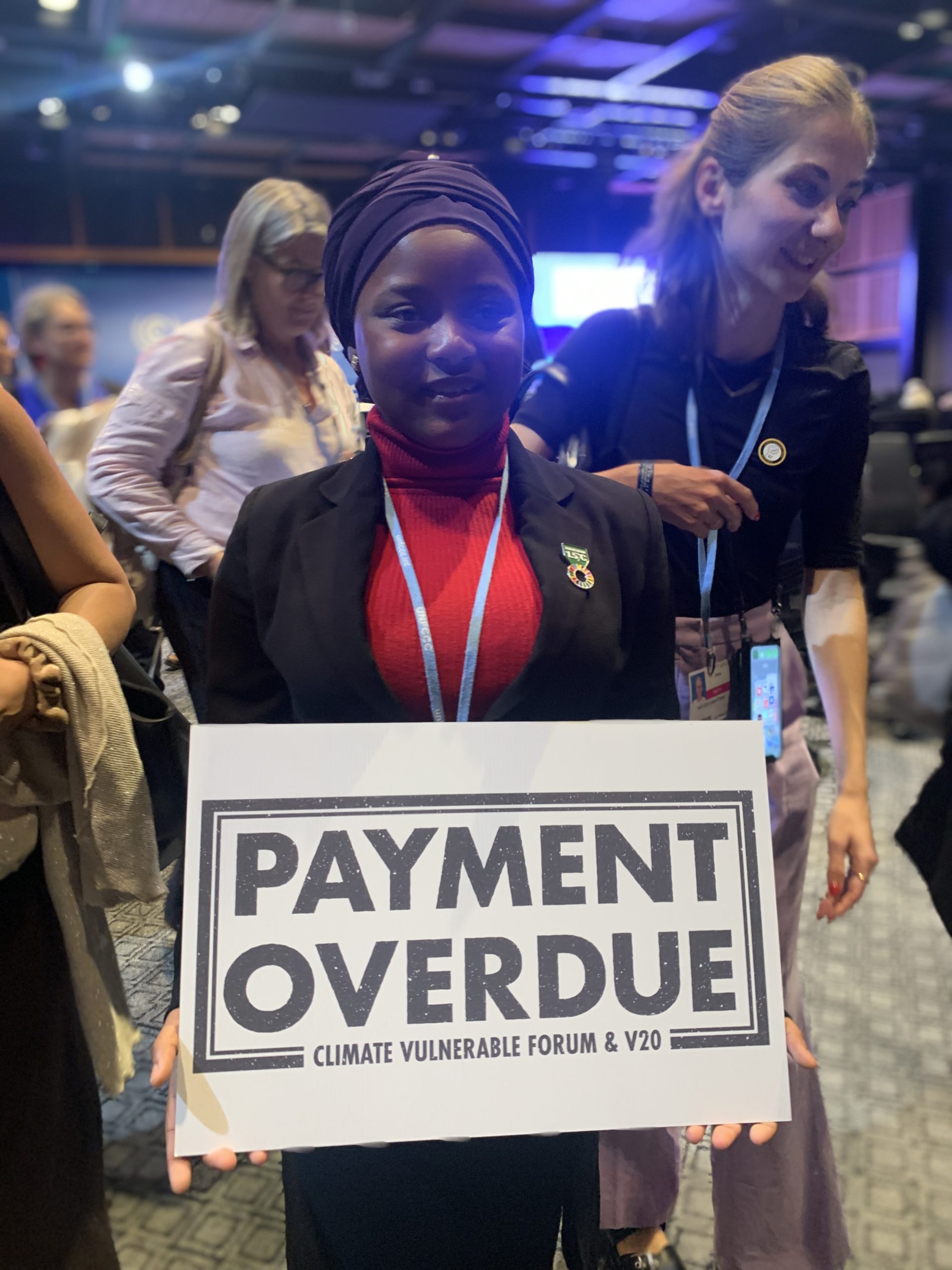We have much more to do and your continued support is needed now more than ever.
Inside COP27— Key Takeaways
Over the last two weeks, world leaders, negotiators, and thousands of other participants converged in Sharm El-Sheikh, Egypt for COP27, the 27th meeting of Parties to the United Nations Framework Convention on Climate Change (UNFCCC).
The final agreement made important progress. It includes essential, landmark provisions that pave the way for climate reparations and a more unified, global agreement on the protective value of nature. Crucially, it also keeps the goal of limiting warming to 1.5°C alive. But it also fell short of hopes, as it failed to call for the phase out of fossil fuels in line with the warnings of the experts and to meaningfully increase global ambition.
Focus on Vulnerable Nations that Contribute the Least to Climate Change
For 30 years, developing nations have pushed for funding, or reparations, for loss and damage, the impacts and harms of climate change that have already occurred or cannot be avoided.
A key success of COP27 was an agreement to establish a fund, although how it will work and how much support will be provided remains to be seen. Still, this was seen as a major victory.
Loss and damage includes economic impacts, such as damage to homes or crops, but also non-economic impacts, such as the emotional and mental trauma of surviving extreme weather events or displacement from one’s home, or worse — the irreplaceable and permanent loss of lives. It encompasses response to disasters (e.g., floods) and to cumulative or slow-moving events (e.g., sea level rise).
Often, the places that experience some of the greatest impacts have contributed the least to climate change: for example, the continent of Africa as a whole has contributed around 4% of global emissions, but its inhabitants bear some of the greatest burdens of climate-influenced drought and extreme weather.
Given the scope and scale of climate change-influenced disasters and catastrophic loss of life and livelihood around the world, it’s unsurprising that loss and damage was the most talked-about agenda item at COP27.
In the Northern Hemisphere, the summer of 2022 was the second hottest ever, surpassed only by the summer of 2020. Droughts in the Western US, Europe, and China continue to exact major economic tolls. In Africa, extreme weather has impacted an estimated 19 million people in 2022. Beginning in June, monsoons of historic proportions and melting glaciers in Pakistan submerged as much as 10% of the country, affecting more than 33 million people. In Florida, Hurricane Ian took more than 150 lives and caused as much as $50-70 billion in damage.
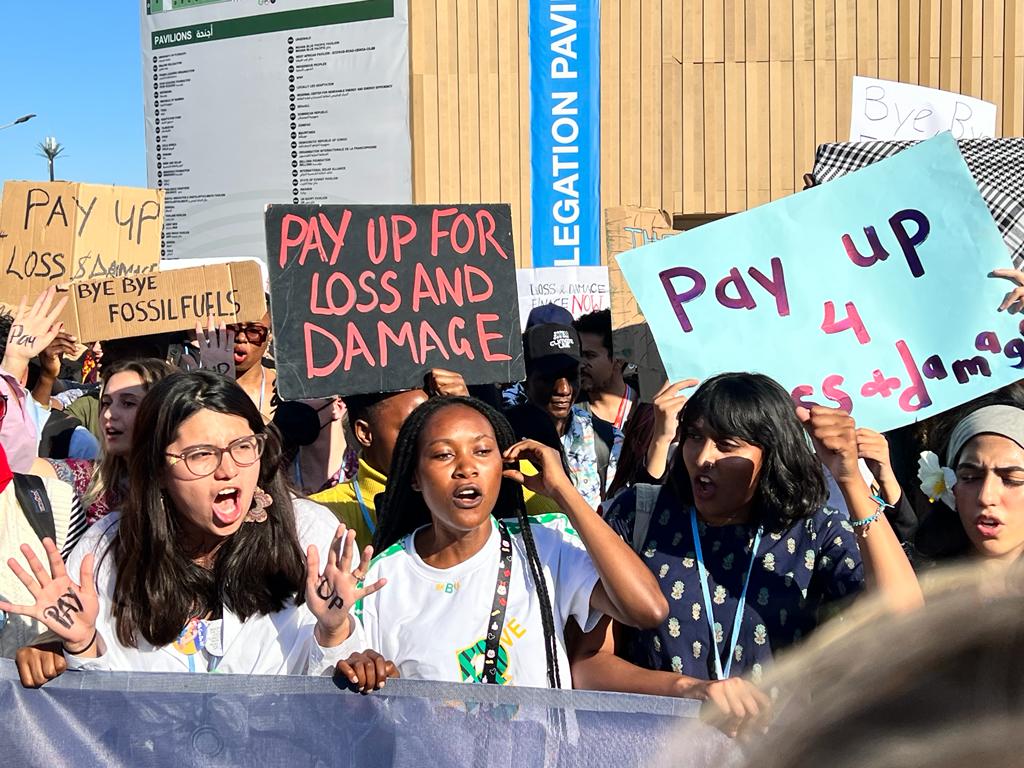
Every Increment of Warming Matters
Loss and damage wasn’t the only area of focus. Other key topics included:
- Fossil Fuel Phaseout: Achieving our collective climate targets will require “deep and rapid” cuts in emissions in all sectors, a “substantial reduction in overall fossil fuel use,” and minimal use of unabated fossil fuels, according to the Intergovernmental Panel on Climate Change (IPCC). Despite efforts by many countries to include clear language on the need to phase-out fossil fuels, little progress was made here.
- Climate Finance: Developed countries had pledged to contribute $100 billion per year in climate finance through 2020, but continue to fall short.
- Cooperation and Emissions Trading: Details and rules on the mechanisms for international cooperation on emissions reductions and trading, referred to in Article 6 of the Paris Agreement, were initially expected to be an important outcome of COP27. It quickly became clear, however, that more technical work from expert groups was necessary, to be reported at COP28. The outcomes of this work will have implications for global voluntary carbon markets.
- Keeping 1.5°C Alive: The participants also resolved to seek to avoid warming the globe beyond 1.5°C, though much more additional action is needed to get us on track to achieve that. The latest review of pledges suggests that if countries keep their commitments, the world is on track for 2.5°C of warming. When it comes to impacts on ecosystems and communities, every increment of warming matters. Countries were urged to submit updated pledges in Glasgow last year, but so far, only a small portion have. This year’s decision also requests countries to submit updated pledges.

Participation in the Process
Opportunities for engagement with the UNFCCC process — or the lack thereof — also featured prominently. This year was the first year that Children and Youth had their own dedicated area (“pavilion”) in the venue, as well as the first year for a Climate Justice pavilion.
Throughout the two weeks of negotiations, Indigenous Peoples expressed frustration and concern at being seen as victims, and at being relegated to observers, instead of direct negotiators. They want to have their voices heard and be leaders with real participation in the discussion for solutions. Of the approximately 33,000 participants badged for participation at COP27, fewer than 300 (or less than 1%) were Indigenous Peoples. Globally, Indigenous Peoples make up around 6% of the population, but are disproportionately vulnerable to climate change and extreme weather. Yet when it comes to conservation, land stewarded by Indigenous Peoples outperforms nearby areas, with lower rates of deforestation and degradation and higher rates of vertebrate biodiversity.
Women also continue to be underrepresented at the conference. This year, women comprised only 34% of country negotiators, down from the peak of 40% in 2018. Of the more than 110 world leaders who attended COP27, only seven were women. Yet women are far more likely to be killed or displaced by climate disasters globally. And women are also essential to strong climate leadership, who can improve outcomes in both business and government.
National Wildlife Federation at COP
- Climate Justice Pavilion: As one of the sponsors of the first ever Climate Justice Pavilion hosted by The Robert D. Bullard Center for Environmental and Climate Justice, Deep South Center for Environmental Justice, and WE ACT, the National Wildlife Federation and its Climate Equity Collaborative (CEC) team convened three panels focusing on:
- Impacted Communities, Technology, and the 21st Century Workforce featuring top sustainability leaders from General Motors, IBM, Microsoft, Accenture, LinkedIn, SEMI, and U.S. Department of Transportation.
- Climate Justice, Climate Education, and 21st Century Climate Leadership featuring youth from Asia, Africa, and the U.S.
- Protecting Our Children in a Changing Climate hosted by CEC founding partner, Children’s Environmental Health Network.
NWF and CEC-hosted receptions provided additional opportunities to strengthen relationships with key stakeholders.
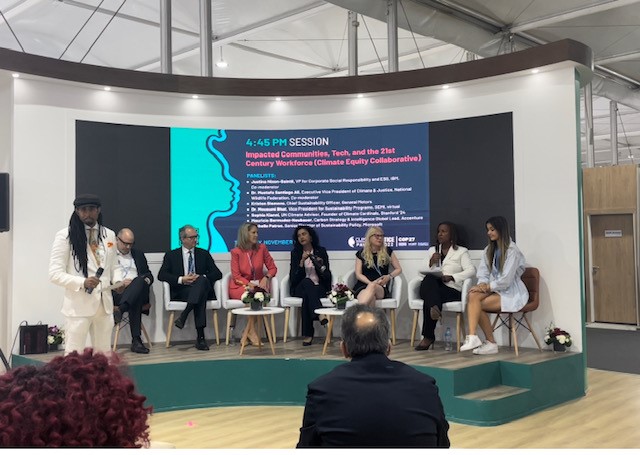
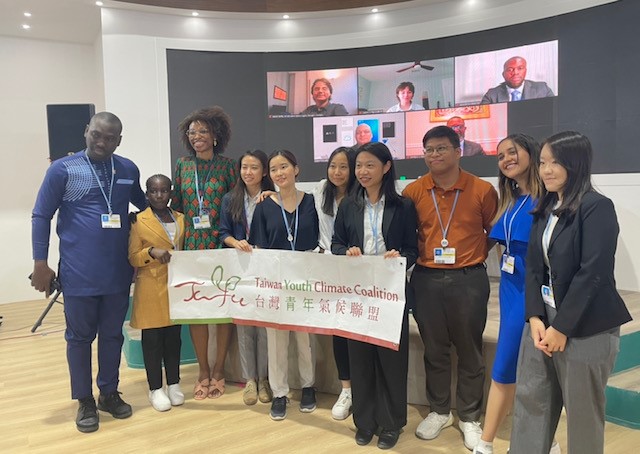
- International Team: The International Team was present at COP27, speaking on panels and engaging with key stakeholders to conserve important habitats while supporting sustainable agriculture. The team also strengthened relationships with the partners and players most relevant to agricultural supply chains all over the world. More broadly, the team engaged with participants to raise ambition on climate mitigation and to support nature-based solutions, particularly forest conservation.
- Land Stewardship Team: At COP27, the Land Stewardship Team worked to raise awareness about the potential for perverse incentives in current UNFCCC guidelines to track emissions from internationally traded bioenergy and the public health impacts of biomass burning for electricity. NWF also gathered bioenergy advocates from around the world for a discussion on the climate and community impacts of bioenergy.
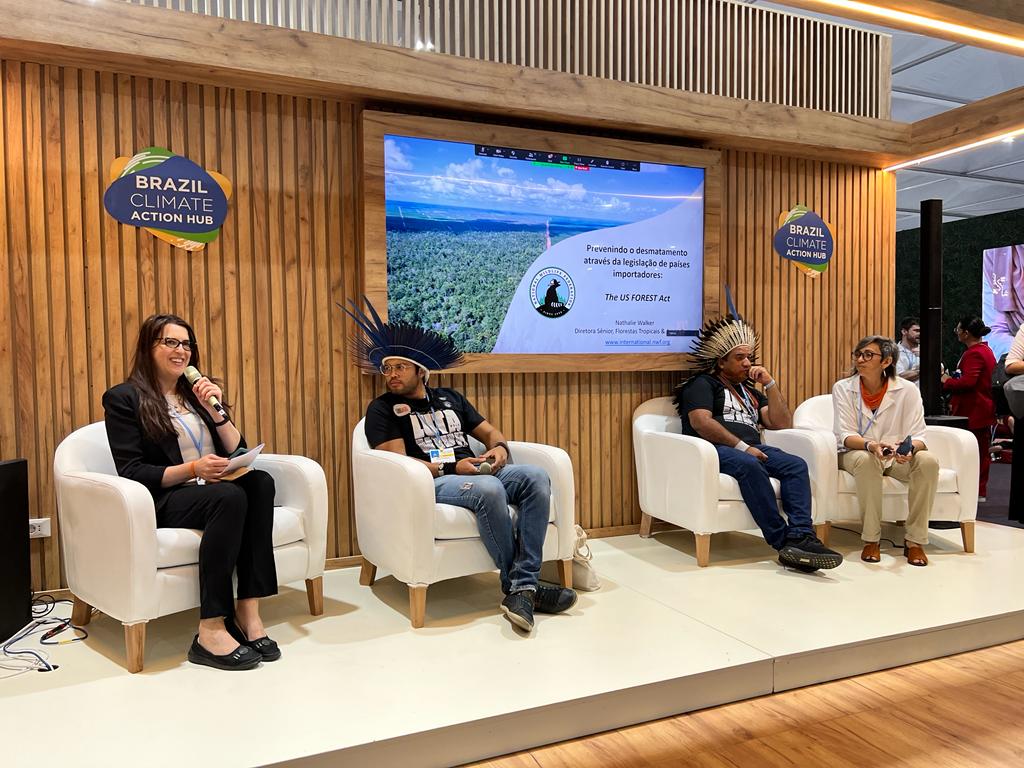
Urgent Need for Increased Action and Increased Ambition
Inaction is not an option. In the latest series of reports from the IPCC, experts emphasized that climate change has already caused widespread loss and damage, and that impacts will increase in the coming decades — especially if we overshoot the 1.5°C goal. Preventing further warming will take rapid and deep reductions in fossil fuel emissions and changes across all sectors of the economy. This includes changes in consumption, as well as improved conservation and stewardship of aquatic and terrestrial ecosystems.
Youth can lead the way. On Friday, 10-year-old Ghanian activist and poet Nakeeyat Dramani received a standing ovation after she addressed negotiators and COP leadership, urging them to rise to the moment: “There’s less than 86 months to go before we hit 1.5 degrees, and I’m already much older than that. So dear people at this COP, I appeal to you: have a heart, and do the math. It is an emergency.”
